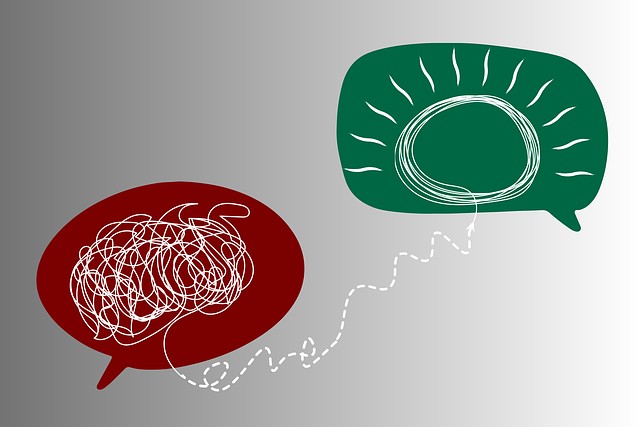Broomfield Chronic Pain Therapy prioritizes holistic self-care for chronic pain management, encompassing physical, emotional, and mental well-being. Key strategies include regular exercise, mindfulness, art therapy, balanced diet, journaling, community support, and education on stress reduction. Overcoming barriers like time constraints or depression is addressed through compassion cultivation and goal setting. Effective self-care plans are dynamic, measurable, and adjusted based on progress, focusing on stress management, sleep quality, and emotional healing. This comprehensive approach enhances quality of life by integrating mental wellness into chronic pain treatment.
In today’s fast-paced world, self-care is more important than ever for managing chronic pain. This comprehensive guide delves into the transformative power of self-care practices within the context of Broomfield Chronic Pain Therapy. We explore strategies to understand and manage pain effectively, identifying personal needs crucial for holistic well-being. Learn practical steps to integrate self-care routines into your daily life, overcome barriers, and measure success, ultimately enhancing your journey towards a healthier, pain-managed future.
- Understanding Self-Care and Its Impact on Chronic Pain Management
- Identifying Personal Self-Care Needs in Broomfield Chronic Pain Therapy
- Strategies for Integrating Effective Self-Care Routines
- Overcoming Barriers to Consistent Self-Care Practices
- Measuring Success and Adjusting Your Self-Care Plan
Understanding Self-Care and Its Impact on Chronic Pain Management

Self-care is a crucial aspect of managing chronic pain and plays a significant role in Broomfield Chronic Pain Therapy. It involves active practices that individuals engage in to maintain or improve their overall well-being, including physical, emotional, and mental health. For those suffering from chronic pain, self-care strategies can be transformative, offering much-needed relief and a sense of control. Understanding the impact of self-care is essential in developing effective management plans.
By incorporating self-care practices, individuals with chronic pain can reduce stress, enhance their ability to cope, and improve overall quality of life. This may include various activities such as regular exercise tailored to their needs, practicing mindfulness or meditation techniques, engaging in creative outlets like art or music therapy, and maintaining a balanced diet. Furthermore, keeping a mental wellness journal can be an insightful mental illness stigma reduction effort, helping individuals track their pain levels, moods, and thoughts, thereby fostering self-awareness and enabling better decision-making regarding their care. Community outreach programs implementation can also facilitate access to support networks, peer sharing, and valuable mental wellness journaling exercise guidance.
Identifying Personal Self-Care Needs in Broomfield Chronic Pain Therapy

Identifying personal self-care needs is a crucial step in Broomfield Chronic Pain Therapy. Individuals experiencing chronic pain often require specialized approaches to manage their emotional well-being alongside physical treatments. This involves understanding unique triggers, coping mechanisms, and holistic preferences for each patient. Therapists can facilitate this process by encouraging open dialogue about daily routines, stress factors, and sources of joy. Through active listening and the application of empathy building strategies, therapists in Broomfield Chronic Pain Therapy create a safe space for clients to explore their self-care requirements.
Mental health education programs design and emotional well-being promotion techniques play a pivotal role in this journey. These tools empower patients with knowledge about pain management strategies, such as mindfulness practices and stress reduction techniques. By integrating these into daily routines, individuals can actively contribute to their overall healing process. This holistic approach ensures that the focus extends beyond physical symptoms, addressing the interconnectedness of mental and emotional health in Broomfield Chronic Pain Therapy settings.
Strategies for Integrating Effective Self-Care Routines

Integrating effective self-care routines into your daily life is a powerful tool for managing chronic pain and improving overall well-being. At Broomfield Chronic Pain Therapy, we emphasize the importance of holistic treatment approaches that address not just physical symptoms but also mental and emotional aspects. One key strategy is to establish a consistent self-care schedule. This could include activities like regular exercise tailored to your comfort level, mindfulness practices such as meditation or deep breathing exercises, and dedicated time for hobbies or relaxation.
Moreover, empathy building strategies and mental health education programs design can significantly enhance your self-care journey. Engaging in social interactions that foster a sense of belonging, participating in support groups, or even undergoing social skills training can improve coping mechanisms and provide valuable peer support. By incorporating these practices into your routine, you create a nurturing environment where you actively tend to your mental health alongside managing chronic pain.
Overcoming Barriers to Consistent Self-Care Practices

Overcoming barriers to consistent self-care practices is an essential step towards improved well-being. Many individuals struggle to prioritize their mental and physical health due to various reasons, including time constraints, high-stress levels, or even societal expectations. In today’s fast-paced world, it’s easy to get swept away in daily routines, often neglecting personal needs. Broomfield Chronic Pain Therapy highlights the significance of recognizing these barriers and offers strategies to overcome them.
One significant hurdle is depression prevention, as low mood can deter people from engaging in self-care activities. Building inner strength through compassion cultivation practices can help individuals combat this challenge. By fostering self-compassion, one can develop a healthier relationship with oneself, making it easier to embrace and maintain consistent self-care routines. These practices encourage mindfulness, which is crucial for navigating life’s stressors and promoting overall mental health.
Measuring Success and Adjusting Your Self-Care Plan

Measuring success and adjusting your self-care plan go hand in hand when it comes to improving overall well-being, especially for those dealing with chronic pain in Broomfield. It’s crucial to set realistic goals and track your progress to ensure that your self-care practices are effective. Start by identifying key areas of focus—whether it’s managing stress, enhancing sleep quality, or cultivating positive emotional healing processes. Use quantifiable metrics to gauge success; for instance, tracking the number of days with improved pain management or increased energy levels.
Regularly reviewing and adjusting your self-care plan is essential. If you notice patterns that indicate certain practices are more beneficial than others, tailor your routine accordingly. Incorporate aspects that promote mental wellness, such as engaging in a Mental Wellness Podcast Series Production, to complement physical interventions like chronic pain therapy. This dynamic approach ensures that your self-care strategy remains relevant and aligned with your evolving needs, fostering continuous improvement and enhanced self-esteem.
In the realm of Broomfield Chronic Pain Therapy, prioritizing self-care is not just a recommendation—it’s a powerful tool for managing pain and enhancing overall well-being. By understanding the impact of self-care, identifying personal needs, adopting effective strategies, and overcoming barriers, individuals can create tailored routines that significantly improve their quality of life. Regularly measuring success and adjusting self-care plans ensures a dynamic approach to healing, allowing for a holistic transformation in navigating chronic pain.














